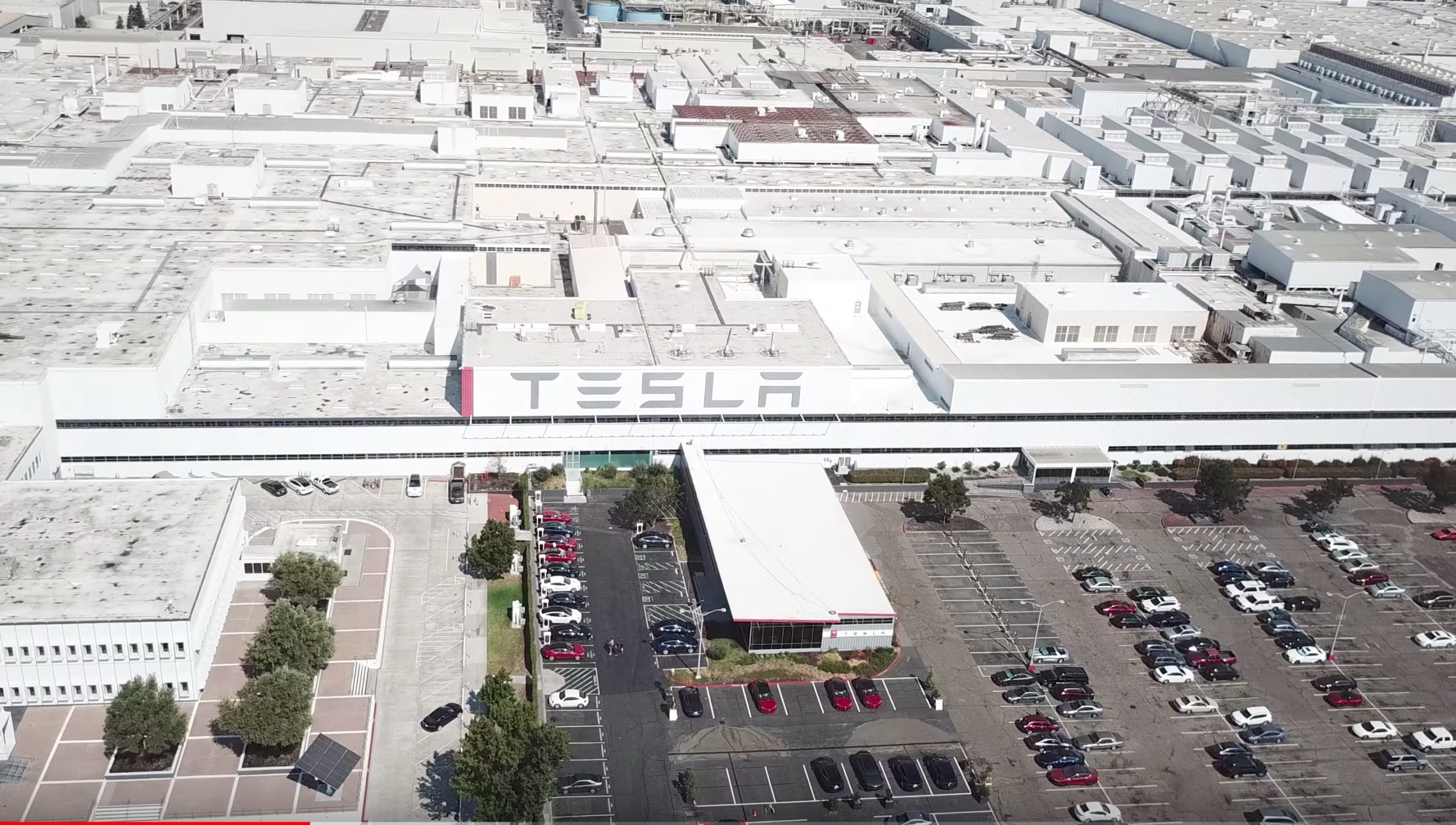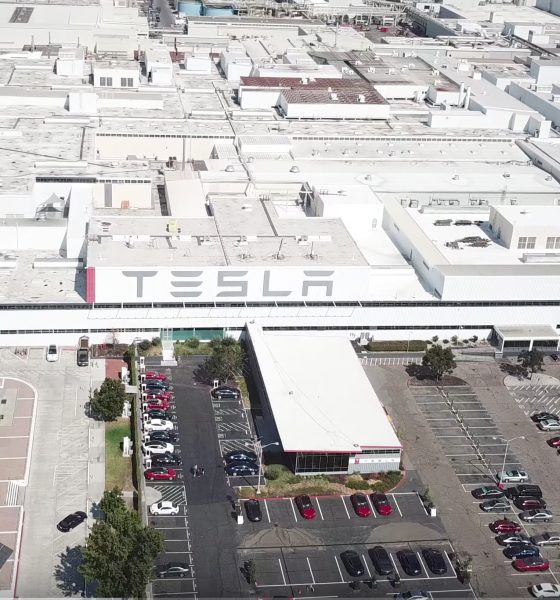

Investor's Corner
It’s clear, Tesla needs a COO and it can’t come soon enough
Tesla’s stock price has fallen nearly 24% in the last month, with the majority of the decline occurring this week. The drastic change isn’t really attributable to a single factor. The company is under pressure across the board, from Model 3 production, Solar Roof delays, concerns of a cash crunch, and delays in Autopilot’s Full Self-Driving capability. While there isn’t one solution to solve all of Tesla’s growing pains, hiring a Chief Operating Officer could help bring some operational stability to the company while curbing any overpromises made to customers and investors.
Elon Musk has been the CEO of Tesla for the past 9.5 years, and with a newly approved multi-billion dollar compensation plan, signs point to Musk taking the reins for at least another 10 years. However, Musk isn’t committing solely to Tesla as he’s also the CEO and CTO of SpaceX, CEO of Neuralink, CEO of The Boring Company, and one can argue that he’s also a full-time Twitter persona.
In his other companies outside of Tesla, Musk has a key executive running the business operations. President and COO Gwynne Shotwell joined SpaceX as the 11th employee in 2002 and has turned Musk’s passion for Space into a business with over $12 billion in order contracts.
Although Tesla has nearly six times more employees than SpaceX, the young space company operates efficiently and akin to a well-oiled machine, according to employees working at SpaceX. Yet, at the same time, Tesla has seen high executive turnover, as Musk holds tight control of the company’s day-to-day management.
Tesla’s need for a “Shotwell Equivalent” is more apparent than ever and for these key reasons:
- Model 3 Production: Bloomberg’s Model 3 production tracker shows that they are below 50% of their end of March production rate target. Musk should have never increased production targets on the vehicle and needed to be far more conservative with his estimates.
- Continuous delays with Autopilot technology: After ditching Mobileye’s technology in autopilot systems 21 months ago, Tesla’s development of the technology has slowed significantly. Musk first said that a Tesla would be able to drive coast-to-coast autonomously by the end of 2017, that has now been moved to mid-2018.
- Need to capitalize on Model S and Model X. Tesla has built a high-margin business out of their Model S and Model X vehicles. At current production rates, the company can generate $2.5 billion in free cash flow from those two vehicles alone. Tesla should use strategic marketing to boost demand for the vehicles, allowing the company to bring in more high-margin revenue.
- Acquisition of SolarCity: Tesla’s acquisition of solar installation company, SolarCity, has failed to provide meaningful value to shareholders. From the outside, it appears as though Tesla’s management team doesn’t have the bandwidth or cash to grow the Solar division. Both of Musk’s cousins Peter and Lyndon Rive have left Tesla after the acquisition to “focus on other projects”.
It would be foolish to think that a COO would solve all of the company’s issues, but having a dedicated executive to manage day-to-day operations could certainly help in preventing executive turnover while keeping employees focused on Tesla’s core mission: to accelerate the world’s transition to sustainable energy.
Who could be Tesla’s new Chief Operating Officer?
I’ve prepared a shortlist of executives that could potentially land themselves as Tesla’s first COO.
1. Mike Sievert (COO of T-Mobile US)
While Sievert doesn’t have automotive experience, he does bring strong experience managing a large employee base and has worked in the technology sector for the past 25 years. Sievert joined T-Mobile in late 2012 as CMO and became COO in 2015. Since joining T-Mobile, Sievert has been crucial to the company’s successful turnaround. And to boot, Sievert has experience working with outspoken CEOs who also moonlight as a Twitter personality.
2. Julia Steyn (VP Urban Mobility at General Motors and CEO of Maven)
 Steyn joined General Motors in 2012 as VP of Merger and Acquisitions and became the VP of Urban Mobility and CEO of GM’s Maven division in late 2015. She has led the company’s initiative into car-sharing with the Maven division and has played a key role in GM’s moves into autonomous vehicles. Prior to joining GM, Steyn was VP at Alcoa, one of the world’s largest aluminum suppliers. She also spent 7.5 years at Goldman Sachs as VP of the Global Natural Resources Group in the Investment Banking division.
Steyn joined General Motors in 2012 as VP of Merger and Acquisitions and became the VP of Urban Mobility and CEO of GM’s Maven division in late 2015. She has led the company’s initiative into car-sharing with the Maven division and has played a key role in GM’s moves into autonomous vehicles. Prior to joining GM, Steyn was VP at Alcoa, one of the world’s largest aluminum suppliers. She also spent 7.5 years at Goldman Sachs as VP of the Global Natural Resources Group in the Investment Banking division.
3. Alicia Boler Davis (EVP, Global Manufacturing and Labor Relations, General Motors)
 Boler Davis has spent the last 24 years at General Motors in a variety of capacities and became EVP of Global Manufacturing and Labor Relations in 2016. She oversees over 150,000 employees in the manufacturing division of GM across 150 different facilities. Prior to her current role, she was SVP of Global Connected Customer Experience where she played a role, like Julia Steyn, in GM’s expansion into car-sharing and autonomous vehicles. Her extensive engineering and managerial experience at GM could bring more order and stability as the company plans to expand production across the globe.
Boler Davis has spent the last 24 years at General Motors in a variety of capacities and became EVP of Global Manufacturing and Labor Relations in 2016. She oversees over 150,000 employees in the manufacturing division of GM across 150 different facilities. Prior to her current role, she was SVP of Global Connected Customer Experience where she played a role, like Julia Steyn, in GM’s expansion into car-sharing and autonomous vehicles. Her extensive engineering and managerial experience at GM could bring more order and stability as the company plans to expand production across the globe.
Obviously, this list isn’t comprehensive but should provide a starting point for potential hires. Who do you think should be hired as the first Chief Operating Officer at Tesla?

Elon Musk
Tesla stock gets latest synopsis from Jim Cramer: ‘It’s actually a robotics company’
“Turns out it’s actually a robotics and Cybercab company, and I want to buy, buy, buy. Yes, Tesla’s the paper that turned into scissors in one session,” Cramer said.

Tesla stock (NASDAQ: TSLA) got its latest synopsis from Wall Street analyst Jim Cramer, who finally realized something that many fans of the company have known all along: it’s not a car company. Instead, it’s a robotics company.
In a recent note that was released after Tesla reported Earnings in late January, Cramer seemed to recognize that the underwhelming financials and overall performance of the automotive division were not representative of the current state of affairs.
Instead, we’re seeing a company transition itself away from its early identity, essentially evolving like a caterpillar into a butterfly.
The narrative of the Earnings Call was simple: We’re not a car company, at least not from a birds-eye view. We’re an AI and Robotics company, and we are transitioning to this quicker than most people realize.
Tesla stock gets another analysis from Jim Cramer, and investors will like it
Tesla’s Q4 Earnings Call featured plenty of analysis from CEO Elon Musk and others, and some of the more minor details of the call were even indicative of a company that is moving toward AI instead of its cars. For example, the Model S and Model X will be no more after Q2, as Musk said that they serve relatively no purpose for the future.
Instead, Tesla is shifting its focus to the vehicles catered for autonomy and its Robotaxi and self-driving efforts.
Cramer recognizes this:
“…we got results from Tesla, which actually beat numbers, but nobody cares about the numbers here, as electric vehicles are the past. And according to CEO Elon Musk, the future of this company comes down to Cybercabs and humanoid robots. Stock fell more than 3% the next day. That may be because their capital expenditures budget was higher than expected, or maybe people wanted more details from the new businesses. At this point, I think Musk acolytes might be more excited about SpaceX, which is planning to come public later this year.”
He continued, highlighting the company’s true transition away from vehicles to its Cybercab, Optimus, and AI ambitions:
“I know it’s hard to believe how quickly this market can change its attitude. Last night, I heard a disastrous car company speak. Turns out it’s actually a robotics and Cybercab company, and I want to buy, buy, buy. Yes, Tesla’s the paper that turned into scissors in one session. I didn’t like it as a car company. Boy, I love it as a Cybercab and humanoid robot juggernaut. Call me a buyer and give me five robots while I’m at it.”
Cramer’s narrative seems to fit that of the most bullish Tesla investors. Anyone who is labeled a “permabull” has been echoing a similar sentiment over the past several years: Tesla is not a car company any longer.
Instead, the true focus is on the future and the potential that AI and Robotics bring to the company. It is truly difficult to put Tesla shares in the same group as companies like Ford, General Motors, and others.
Tesla shares are down less than half a percent at the time of publishing, trading at $423.69.
Elon Musk
Tesla to a $100T market cap? Elon Musk’s response may shock you

There are a lot of Tesla bulls out there who have astronomical expectations for the company, especially as its arm of reach has gone well past automotive and energy and entered artificial intelligence and robotics.
However, some of the most bullish Tesla investors believe the company could become worth $100 trillion, and CEO Elon Musk does not believe that number is completely out of the question, even if it sounds almost ridiculous.
To put that number into perspective, the top ten most valuable companies in the world — NVIDIA, Apple, Alphabet, Microsoft, Amazon, TSMC, Meta, Saudi Aramco, Broadcom, and Tesla — are worth roughly $26 trillion.
Will Tesla join the fold? Predicting a triple merger with SpaceX and xAI
Cathie Wood of ARK Invest believes the number is reasonable considering Tesla’s long-reaching industry ambitions:
“…in the world of AI, what do you have to have to win? You have to have proprietary data, and think about all the proprietary data he has, different kinds of proprietary data. Tesla, the language of the road; Neuralink, multiomics data; nobody else has that data. X, nobody else has that data either. I could see $100 trillion. I think it’s going to happen because of convergence. I think Tesla is the leading candidate [for $100 trillion] for the reason I just said.”
Musk said late last year that all of his companies seem to be “heading toward convergence,” and it’s started to come to fruition. Tesla invested in xAI, as revealed in its Q4 Earnings Shareholder Deck, and SpaceX recently acquired xAI, marking the first step in the potential for a massive umbrella of companies under Musk’s watch.
SpaceX officially acquires xAI, merging rockets with AI expertise
Now that it is happening, it seems Musk is even more enthusiastic about a massive valuation that would swell to nearly four-times the value of the top ten most valuable companies in the world currently, as he said on X, the idea of a $100 trillion valuation is “not impossible.”
It’s not impossible
— Elon Musk (@elonmusk) February 6, 2026
Tesla is not just a car company. With its many projects, including the launch of Robotaxi, the progress of the Optimus robot, and its AI ambitions, it has the potential to continue gaining value at an accelerating rate.
Musk’s comments show his confidence in Tesla’s numerous projects, especially as some begin to mature and some head toward their initial stages.
Elon Musk
Tesla director pay lawsuit sees lawyer fees slashed by $100 million
The ruling leaves the case’s underlying settlement intact while significantly reducing what the plaintiffs’ attorneys will receive.

The Delaware Supreme Court has cut more than $100 million from a legal fee award tied to a shareholder lawsuit challenging compensation paid to Tesla directors between 2017 and 2020.
The ruling leaves the case’s underlying settlement intact while significantly reducing what the plaintiffs’ attorneys will receive.
Delaware Supreme Court trims legal fees
As noted in a Bloomberg Law report, the case targeted pay granted to Tesla directors, including CEO Elon Musk, Oracle founder Larry Ellison, Kimbal Musk, and Rupert Murdoch. The Delaware Chancery Court had awarded $176 million to the plaintiffs. Tesla’s board must also return stock options and forego years worth of pay.
As per Chief Justice Collins J. Seitz Jr. in an opinion for the Delaware Supreme Court’s full five-member panel, however, the decision of the Delaware Chancery Court to award $176 million to a pension fund’s law firm “erred by including in its financial benefit analysis the intrinsic value” of options being returned by Tesla’s board.
The justices then reduced the fee award from $176 million to $70.9 million. “As we measure it, $71 million reflects a reasonable fee for counsel’s efforts and does not result in a windfall,” Chief Justice Seitz wrote.
Other settlement terms still intact
The Supreme Court upheld the settlement itself, which requires Tesla’s board to return stock and options valued at up to $735 million and to forgo three years of additional compensation worth about $184 million.
Tesla argued during oral arguments that a fee award closer to $70 million would be appropriate. Interestingly enough, back in October, Justice Karen L. Valihura noted that the $176 award was $60 million more than the Delaware judiciary’s budget from the previous year. This was quite interesting as the case was “settled midstream.”
The lawsuit was brought by a pension fund on behalf of Tesla shareholders and focused exclusively on director pay during the 2017–2020 period. The case is separate from other high-profile compensation disputes involving Elon Musk.









